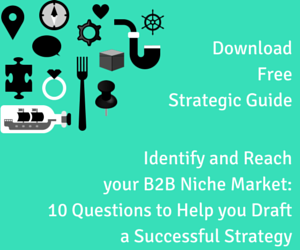As much as many believe (or want to believe) this statement to be truth, with an open mind and the right attitude, engineers and non-engineers can successfully work together, get results – and even get along very well.
We’ve all seen this “movie”: one day, a good customer requests a new feature in the product. Sales and Marketing move sky and earth, get approvals and the development starts rolling to get this done. Ah, forgot to mention… about the promises around that feature and… the deadline. Engineering, then, starts a non-stop, crazy work schedule trying to meet the good customer’s expectations.
There is another “movie” many of us have seen as well: Engineering develops a new set of functionalities for the product. An amazing set of new capabilities. So the product gets launched. How does it come? These new features are amazing, the outcome of many weeks of work… inside the Engineering department’s own bubble. With little to no information about the real needs of the market. Nor input from real customers. A few weeks after the product is launched, Management wonders why the product is not selling as expected.
Sitting on one side of the table, or the other side, we all have been there at some point.
Let’s start by uncovering the pot: more often than not, in most companies, engineers don’t like working with marketers and salespeople, and marketers and salespeople cannot understand how an engineer’s mind works.
What could be the reason for such a pain?
- They don’t share the same background
- They don’t speak the same language
- Their minds are wired in a different way
Download our white paper, A Lean Revenue Production Process: From “Raw Leads” to “Finished Sales”
It’s the sad “us” vs. “them” story. Engineers see marketers as sellers of “smoke”, liers, unaccountable for their work, money wasters. Marketers find engineers rigid, uncreative, lacking of people’s skills.
All the above is a huge pity. Because businesses of all sizes, from new start-ups to the largest corporations, need both teams to move forward and succeed. A company cannot be successful just with a group of engineers developing a product, without someone selling the products. And salespeople would go insane trying to sell a product that doesn’t work properly.
Not only to succeed but even to survive, a healthy company needs both sets of skills.
There are Engineers and Engineers, and there are Marketers and Marketers
Before we discuss the processes that engineers and non-engineers must follow to team-up and achieve results, there is one strategic aspect of this relationship that lies behind, at the fundamental level, and must be explored.
Business management should appreciate that, as professions and businesses get specialized, all engineers and all marketers cannot fall into generalizations. Companies in the engineering field understand the concept that engineers specialize in some fields (civil, industrial, electrical, and mechanical just to name a few), specific industries (aerospace, food, agriculture, and the list goes on and on) and within that, some are experts in particular applications (too many to name here).
It is way less known that the same happens in the non-engineering field. While some marketers and salespeople are Jacks-of-all-trades, others are specialized: business-to-consumer experience doesn’t guarantee success in the business-to-business area, experience in the financial industry doesn’t mean that the industrial manufacturing sector behaves the same way, a graphic designer cannot achieve the same results that an SEO or a lead generation specialist does just because the expertise in work and training has been, simply, different.
Another important aspect to consider is the seniority level of the professionals in the team. Expectations regarding an engineer that just graduated vs. a senior engineer are not the same, and the results expected from junior sales and marketing members of the company should be measured using that same stick.
How to get Engineers and Marketing/Sales to smoothly work together?
Yes. There is a solution for this challenge and it actually works.
It starts by understanding that we all are part of a professional environment. Assuming that both teams are knowledgeable of their trades and both are working their hardest to do what they think is best for the product, both sides should be ready to manage trade-offs. Each team should respect the expertise of the other, and understand that both engineering and marketing/sales are complementary disciplines, capable of interacting in an interdisciplinary teamwork.
To avoid most of the conflict, both parts must collaborate and interact early on the discovery phase of the project, which includes setting key performance indicators (KPIs) to check along the way.
Both departments should buy-in for the product strategy. Even when coming from different, perhaps conflicting perspectives, both engineers and sales/marketing/communications departments have key insights about what is best for the product, and they all should have the right attitude to collaborate in this dynamic.
Both sides of the table must agree on:
- The goals of the project
- The deliverables for each department
- The timelines to meet (are they realistic?)
- Expectations from each department at each step on the way, including KPIs (product performance? Level of sales?)
In many cases, one part will think they “know better” and try to impose their view on the development of the product. In those cases, the teams need an open discussion about the logic behind their position and whether or not these objections are valid. Ultimately, it comes to the project manager, or the company’s management, to make the decision.
To work together, a transparent process sets the basis for the decisions “buy-in”, as well as the collaboration and more empathy with the needs of the other team. Fluent communication is essential, and both teams must accept challenges with respect and a non-antagonistic attitude.






